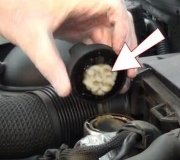We don't get involved with costs here because there's too many variables. You didn't even list the engine size which is one of those variables. GM engines usually require more specialty tools and they are often specific to just one or two engines, so GM mechanics have a larger investment in tools and special equipment than everyone else. Also, GM doesn't design their cars for ease of repair like most other companies. Theirs are designed get to them off the assembly line as quickly as possible. For repairs later, that translates into longer labor times and higher expense for owners.
To make half an attempt at answering the question of cost, some head gasket jobs can cost as little as $500.00 if no machine work is required. At a minimum, the head(s) should be inspected at an engine machine shop to see if they're warped or cracked. Both of those are fairly common. Some cylinder heads can be resurfaced to make them flat so they will seal properly to the new gasket. Some head designs have to be heated in an oven and straightened. Those cost a lot more so your mechanic will typically order a replacement head. On a V-6 or V-8 engine the cost of the entire job can exceed $2000.00. If your engine has overhead camshafts, all professionals will insist on replacing the timing belt too since by itself that is also an expensive job. When doing the head gaskets, the additional cost of a new belt is very low. At the mileage you listed, it's time for a new timing belt as preventive maintenance.
It's not common yet to have a leaking head gasket at the mileage or age you listed. What tests were done to determine a head gasket is leaking? What were the symptoms? As for the problem occurring again, about the only thing you can do is replace the coolant every two years. If you still have that red Dex-Cool antifreeze, (we call it "Dex-Mud"), replace it every two years as the manufacturer of it recommends, not every three years that GM says, and don't even consider it to be "lifetime" coolant as they advertised. They pulled that trick to make their cost of maintenance appear lower than their competitors. Over time it is normal for acids to build up in the coolant. Those acids corrode heater cores, radiators, and head gaskets. GM owners are all too familiar with repeat heater core and radiator failures. The corrosion inhibitor additives in the antifreeze wear out in about two years. That's when the problems begin to occur if the coolant isn't replaced.
There are a lot of precautions professionals take to insure the quality of the repair. Failure to take those precautions can lead to an earlier repeat head gasket failure, but even when they take more care than they did on the assembly line, there's always the chance of another leaking gasket. Some engine designs are prone to head gasket failures, others are not.
Wednesday, December 12th, 2012 AT 10:41 PM


